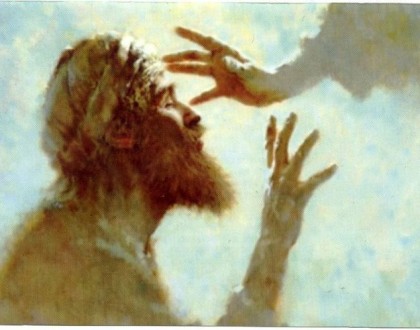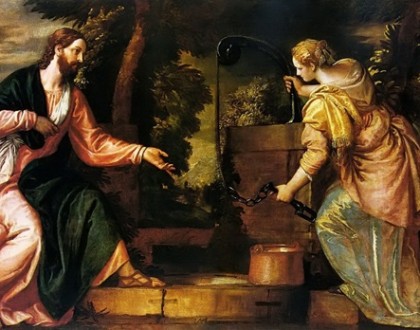26th Sunday of Ordinary Time Year A – Every saint has a past and every sinner a future

26th Sunday of Ordinary Time Year A
Matthew 21:28-32
There is a crack in everything…that’s how the light gets in
“I tell you solemnly, tax collectors and prostitutes are making their way into the Kingdom of God before you.” Matthew 21:31
Every saint has a past and every sinner a future, as the saying goes.
Jesus is speaking to the chief priests, Pharisee elders as they continue to pressure him on his identity and doctrine. This line must have really shocked them and challenged them. They were the religious and moral leaders, their behaviour was often, at least outwardly, legally impeccable. And now you are telling us that public sinners such as tax-collectors and prostitutes go before us!
This line from Jesus also shocks many of us Catholics because it fundamentally challenges our way of seeing God, sin, forgiveness, mercy and redemption.
It’s not our moral perfections that get us to heaven, it’s saying yes to God’s grace, forgiveness and mercy. God loves us not because we are good, but because He is good. You can’t twist God’s arm into loving you, he already does.
Morally good acts should be the fruits of an inner event of transformation in the depth of our being, that of being conscious that we are unconditionally loved by God.
The danger is that morally good acts can also become a camouflage to real change and just mask a non-transformed self. We go through the motions of appearing good but inside nothing has changed. It’s still the ego in charge, still in control and no real inner transformation and spiritual surrender in love to God.
Morally good acts should be the fruits of an inner event of transformation in the depth of our being, that of being conscious that we are unconditionally loved by God. The danger is that morally good acts can also become a camouflage to real change and just mask a non-transformed self.
There’s a beautiful line from Leonard Cohen’s song Anthem that suggests that the place where we are broken is also the place where our redemption starts: “There is a crack in everything, that’s how the light gets in.”
That’s true, a major wound is often the place where wisdom flows into our lives and a weakness that habitually overpowers us can keep us aware of our need for grace. But that’s half of the equation. A fault, while keeping us humble, can also keep us in mediocrity and joylessness.
Our addictions, our infidelities, and our less-than-healthy indulgences might well bring us some pleasure (though, soon enough, that pleasure turns into a compulsion) but these never bring us joy. They bring sadness. Joy is not the same as pleasure and, indeed, we speak of sad pleasures. There can be a lot of pleasure in our lives even as our hearts are sad and our consciences are heavy.
True joy is something beyond pleasure and can co-exist with renunciation and pain. It is dependent rather on honesty, transparency, and gratitude, the real hallmarks of sanctity. When we are honest in examining our experience we know this truth. If any of us ask ourselves: When have I been most truly happy in my life? The honest answer invariably will be: I have been happiest and most at peace at those times when I have been faithful, honest, fully transparent, when all the goods were on the table, and I had nothing to hide, even if I was less than perfect. When an initial no to God became a yes (Matt 21:29).
“The great challenge is living your wounds through instead of thinking them through. It is better to cry than to worry, better to feel your wounds deeply than to understand them, better to let them enter into your silence than to talk about them. The choice you face constantly is whether you are taking your wounds to your head or your heart.” Henri Nouwen
Recent Sermons

Easter Sunday – The Resurrection
April 14, 2017

4th Sunday of Lent Year A – The Man Born Blind
March 27, 2017

3rd Sunday of Lent Year A – The Samaritan Woman at the Well
March 20, 2017

